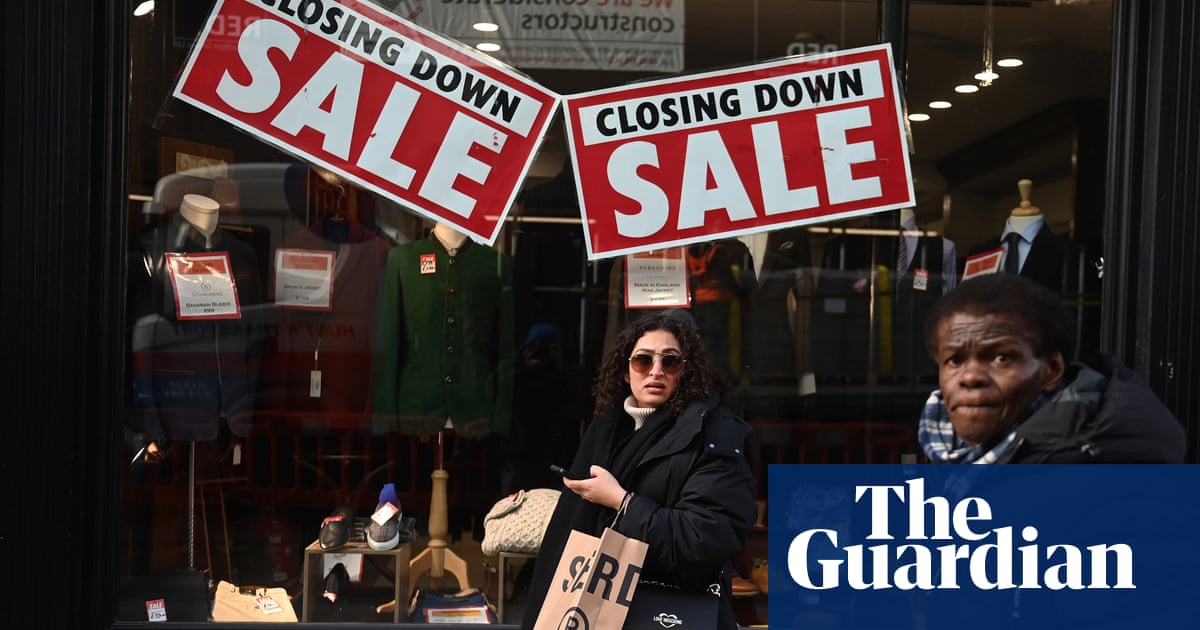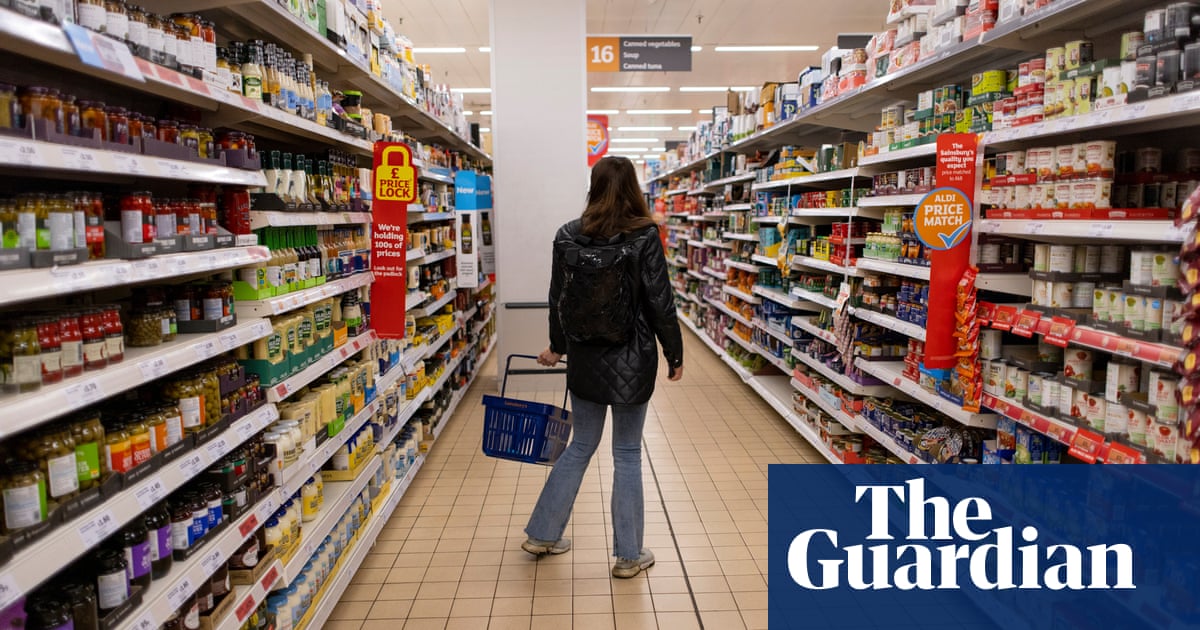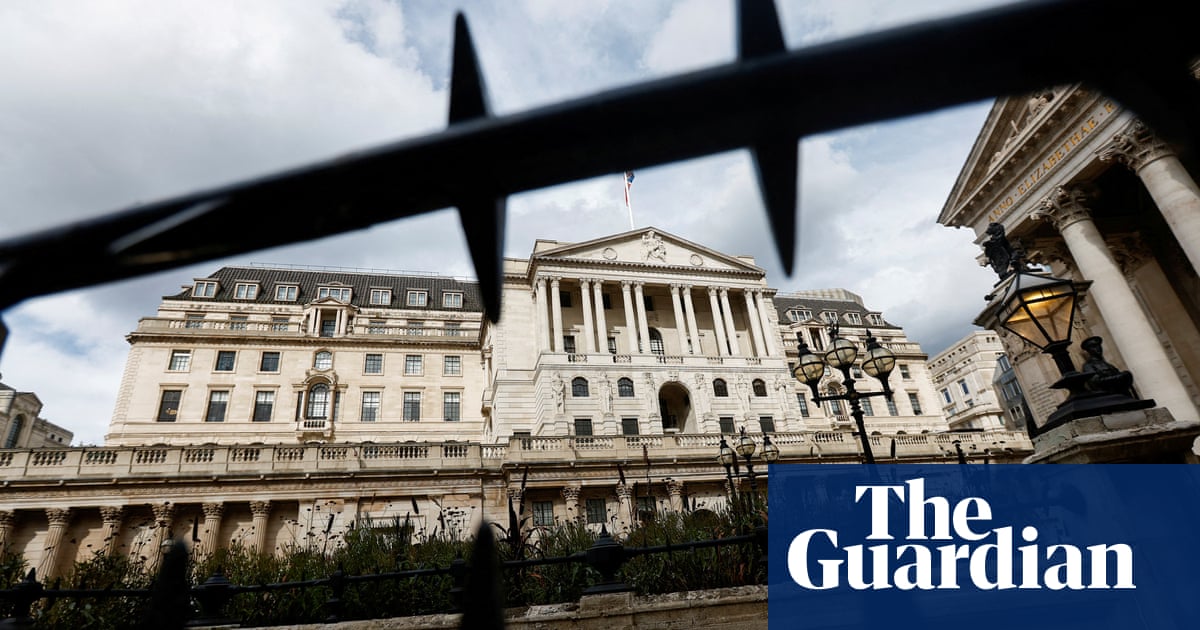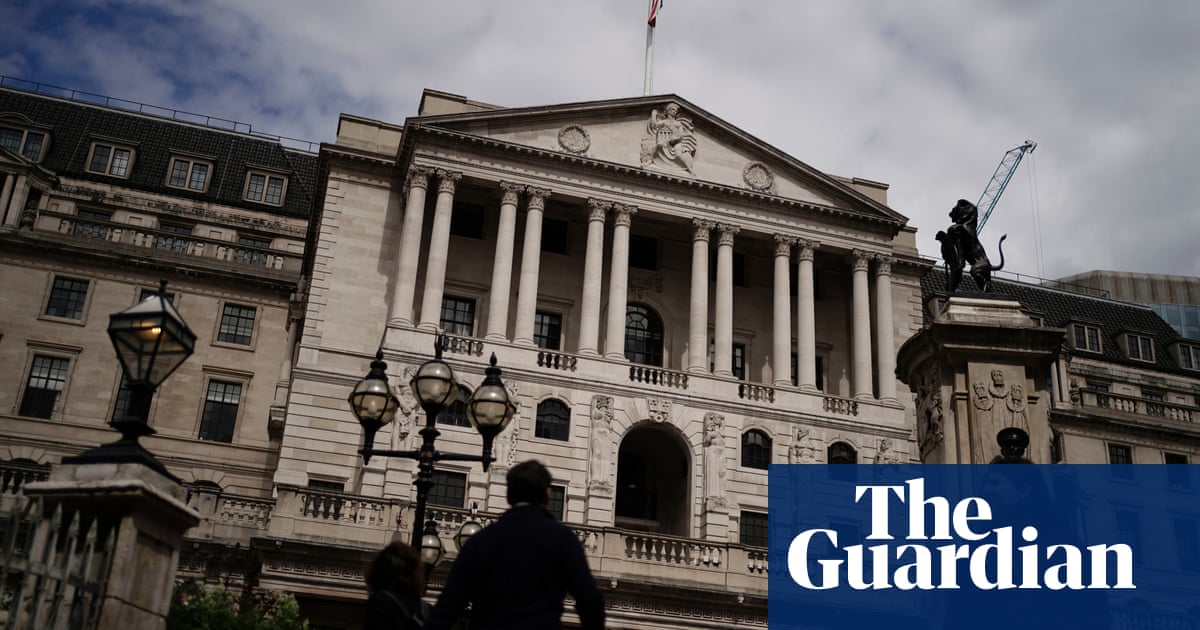
New restrictions to limit the spread of the Omicron variant will delay an interest rate increase from the Bank of England despite signs that the government’s measures will add to the cost of living for hard-pressed consumers, the City believes.
The pound fell on the currency markets on expectations that Threadneedle Street’s monetary policy committee will shy away from the first increase in borrowing costs since the start of the pandemic, and instead join the Treasury in adopting a wait-and-see approach to Omicron.
The government’s plan B measures, announced on Wednesday, will see workers asked to stay away from their offices and Covid passes made compulsory at larger venues. The curbs are expected to add to the cost of living, as spending shifts once more from going out to online shopping, driving up the price of consumer goods as demand rises.
However, fears of an economic slowdown mean the Bank of England is now less likely to intervene to dampen inflation.
At the start of last week, the City thought there was a 70% chance of the Bank acting to head off the inflationary pressure hitting living standards by raising interest rates from 0.1% to 0.25%. This possibility had dropped to 46% ahead of the plan B announcement, and fell further to 40% on Thursday.
Paul Dales, the chief UK economist at Capital Economics, said: “While the emergence of the Omicron Covid-19 variant has increased the downside risks to our GDP forecasts, it has arguably increased the upside risks to our CPI inflation forecasts.”
Rishi Sunak will monitor the impact of the curbs announced this week but has no plans to increase financial support at this stage because the possibility of this week’s tightening of restrictions in England was already factored into his plans.
Groups representing hospitality, travel and retail – the sectors most likely to be affected by the curbs – are pressing for more government help but the chancellor is only likely to respond if tougher restrictions are imposed or the current restrictions last for a prolonged period.
The latest flash estimates of the economy detected signs of an Omicron effect, with a surge in credit and debit card spending on Black Friday but a fall in the number of people eating out.
“The transmissibility, severity and capacity for Omicron to escape vaccines are still unknown,” said Dales. “But if Omicron leads the government to close non-essential retail, hospitality venues and schools, we think GDP would fall by something like 3%. As has been the case in previous lockdowns, that would boost demand for goods relative to demand for services, which may keep goods inflation higher for longer.”
In the meantime, analysts believe plan B measures will have only a modest impact on the economy’s growth rate.
Josie Dent, a UK economist at the Centre for Economics and Business Research, said working from home would lead to a step change in commuter and thus city-centre consumer behaviour. She estimated the guidance would hit spending by £500m in five selected English cities in the next month – London, Manchester, Newcastle, Nottingham and Milton Keynes.
“On the other hand, we judge that restrictions relating to mask-wearing and Covid certification measures are unlikely to imply significant economic costs on balance, as consumers and businesses have increasingly adapted to such measures throughout the pandemic. A short-term cost may however be felt by businesses as they implement such measures over the coming days.
“Meanwhile, independent of plan B, increased nervousness over the new variant and stricter travel restrictions are expected to cause a loss of £0.9bn in UK hospitality revenues this month, and £0.4bn in inbound travel spending.”
The ONS said Black Friday sales pushed spending on credit and debit cards in Britain to its highest level since before the first lockdown of March 2020, but restaurant bookings fell to their lowest since restrictions on indoor hospitality eased in May.
In its evaluation of its recent forecasting record, the Office for Budget Responsibility – the independent body responsible for the government’s economic and financial health checks – said businesses had become better able to cope with even tough curbs.
“As the pandemic unfolded, households and businesses became increasingly adapted to the virus and associated restrictions as consumers shifted purchases online, businesses made premises Covid-safe, and employees further adjusted to working remotely. As a result, whereas output dropped to around 25% below pre-pandemic levels in April 2020 it was only 9% lower in January 2021, despite both being spent in full national lockdown.”












